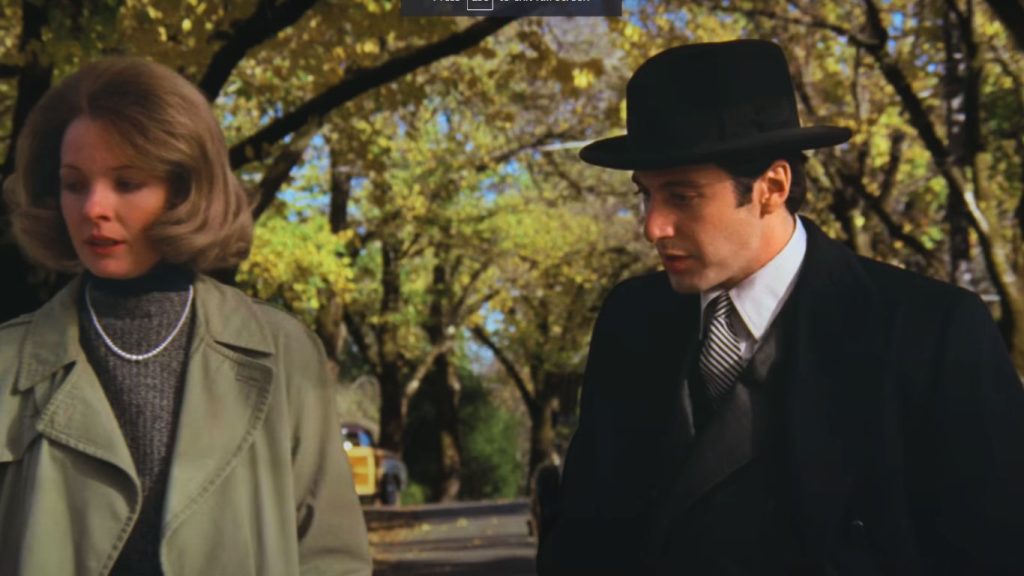
“The Godfather,” directed by Francis Ford Coppola and penned by Mario Puzo, who also authored the original novel, is a cornerstone of American cinema. Released on March 24, 1972, this epic crime saga not only set benchmarks for filmmaking but also left audiences wondering: Is “The Godfather” based on a true story? This piece dives into the murky waters of reality and fiction that blend seamlessly in Coppola’s magnum opus, exploring the characters and the lore behind the Corleone family’s rise and fall.
The Real Inspirations Behind Michael Corleone
Michael Corleone, portrayed with chilling poise by Al Pacino, is a character whose transformation from reluctant family outsider to ruthless mafia boss is central to the film’s plot. The query, “Is Michael Corleone based on a real person?” sparks considerable intrigue. While Michael himself is a fictional character, aspects of his persona and decisions are believed to be inspired by real-life mob figures like Carlo Gambino, who was known for his low-profile, strategic mindset, much like Michael.
Unmasking the Real Godfather
So, who was the real godfather in real life? If we look beyond the silver screen, figures such as Frank Costello and Vito Genovese come to mind. Costello, in particular, was known for his influence and governance without excessive reliance on violence, preferring political and economic manipulation—traits that echo Vito Corleone’s leadership style.
The Narrative Fabric of “The Godfather”
What is the story behind “The Godfather”? The film’s narrative, spanning 1945 to 1955, chronicles the complexities of loyalty, power, and family within the Corleone crime family. As Vito Corleone, played by Marlon Brando, begins to step back from the family business, his youngest son, Michael, takes up the reins, marking a significant shift in the family’s approach to business. The plot weaves Michael’s reluctant yet inevitable descent into the depths of organized crime, presenting a potent mix of personal and moral conflict.
Exploring the Fame of “The Godfather”
Why is “The Godfather” so famous? Its fame can be attributed to its profound narrative depth, character development, and cinematic techniques. Moreover, the performances of an ensemble cast featuring stars like Marlon Brando, Al Pacino, and James Caan, under Coppola’s visionary direction, have made it a subject of study and admiration in cinematic circles worldwide.
Awards and Accolades: A Testament to Greatness
How many Oscars did “The Godfather” win? It clinched three Academy Awards: Best Picture, Best Actor for Marlon Brando, and Best Adapted Screenplay for Mario Puzo and Francis Ford Coppola. These accolades are a testament to its craftsmanship and enduring appeal.
Box Office and Cultural Impact
Was “The Godfather” a hit or a flop? Undoubtedly a massive hit, “The Godfather” was the highest-grossing film of 1972. Its impact extended beyond box office numbers, influencing countless films and becoming a cultural touchstone.
Is “The Godfather” the Best Movie of All Time?
The debate over whether “The Godfather” is the best movie of all time is subjective, yet it frequently tops various lists of greatest films, cited for its profound impact on film and culture. Its inclusion in the U.S. National Film Registry and its perennial presence in critical discussions underscore its legacy.
Conclusion: The Blend of Fact and Fiction
While “The Godfather” might not be a direct recount of true events, it encapsulates elements inspired by real-life figures and incidents, woven into a narrative that resonates with themes of power, family, and destiny. Its legacy as a masterpiece of cinema is undeniable, and its roots in reality only enhance the mystique and allure of the Corleone saga.
For those intrigued by the real stories behind cinematic legends, further exploration and discussion can be found on Istruestory, where the lines between fact and fiction blur into compelling narratives.

I am Jeremy Jahns – Your Cinematic Explorer
Immerse in movie reviews, Hollywood insights, and behind-the-scenes stories.